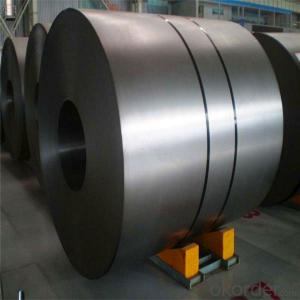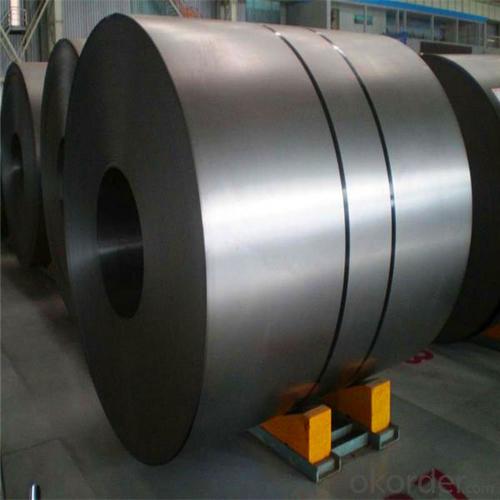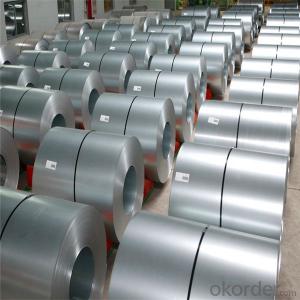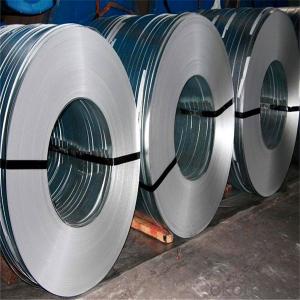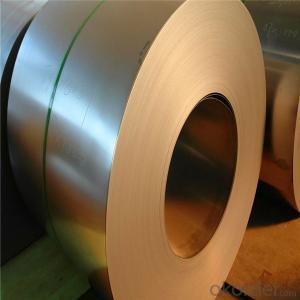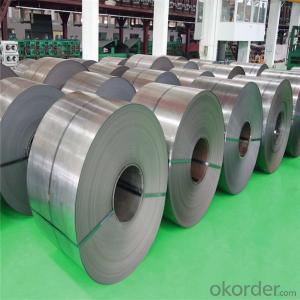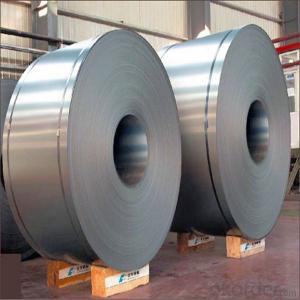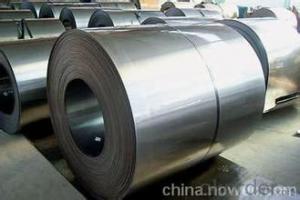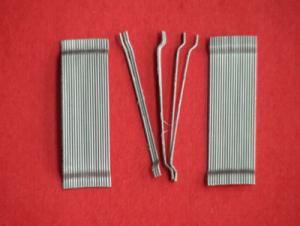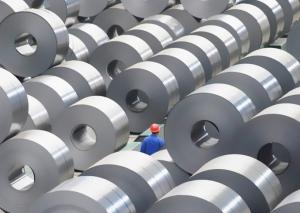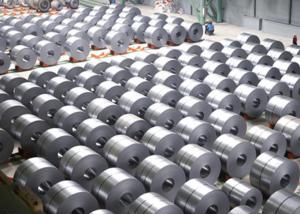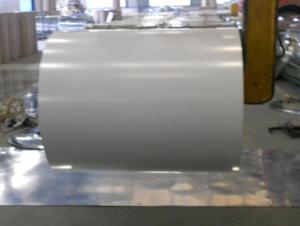Cold Rolled Steel Sheet/Coil Made in China China Supplier
- Loading Port:
- China main port
- Payment Terms:
- TT OR LC
- Min Order Qty:
- 20 m.t.
- Supply Capability:
- 50000 m.t./month
OKorder Service Pledge
OKorder Financial Service
You Might Also Like
Specification
Prime Quality SPCC Cold Rolled Steel Sheet/coil
Widely used to appliance,automobile industry or other decoration usage.
Certificate: ISO9001
Packing Details: Standard Export Packing.
Products Picture
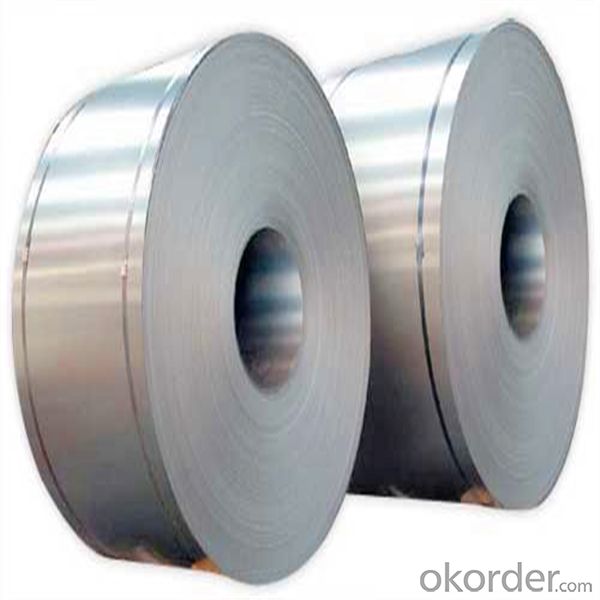
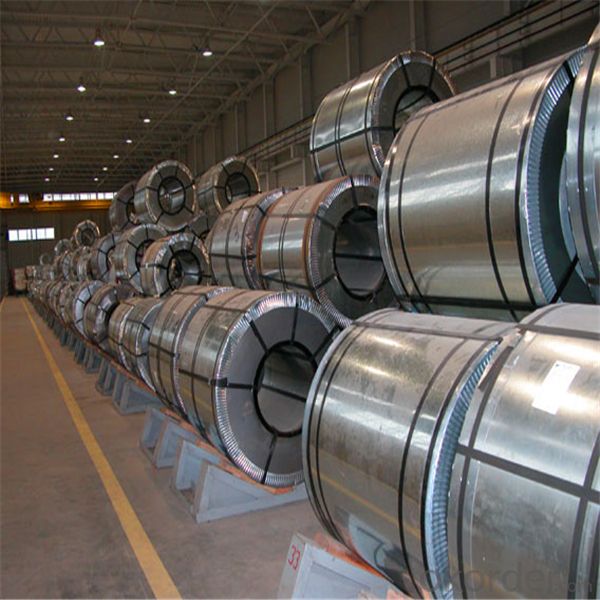
What is Cold Rolled Steel Coil?
Cold rolled steel coil is steel that has been worked below its recrystallization temperature by passing it between a pair of rollers. Recrystallization temperature is the temperature at which grains in the lattice structure of the metal have been rearranged, leaving it free of strain and deformations. Cold rolled steel coil is pre-treated before being cold rolled with a process known as pickling, which uses strong acids to remove scale and other impurities. The cold rolled steel coil is then passed through rollers to reduce its thickness. Most cold rolling takes place in multiple passes and as the size of the cold rolled steel coil is further reduced, its strength and hardness both increase, but its ductility decreases. After cold rolling, heating the metal up in a process known as annealing can restore some of its ductility. The final cold rolled steel coil may be manufactured in the form of sheets, strips, bars, or other forms.
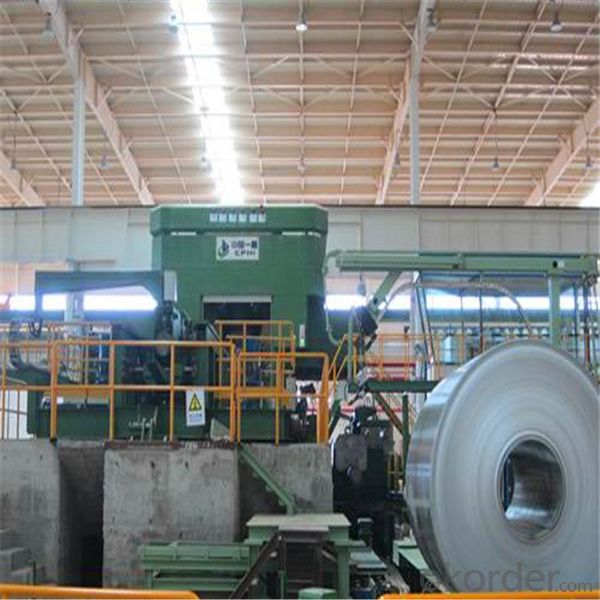
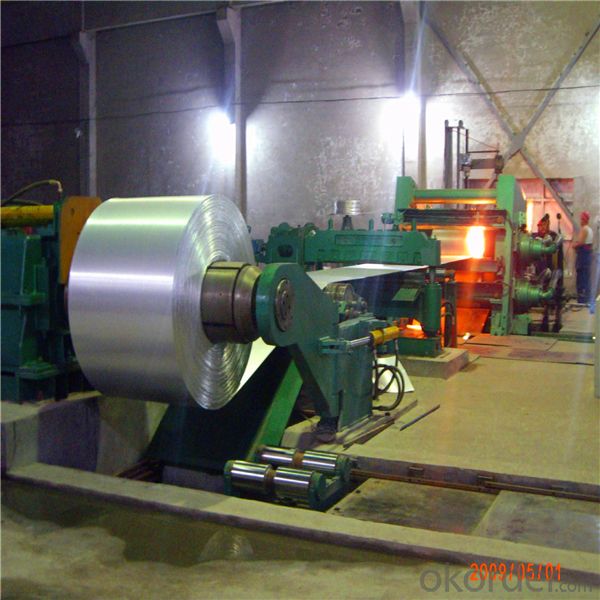
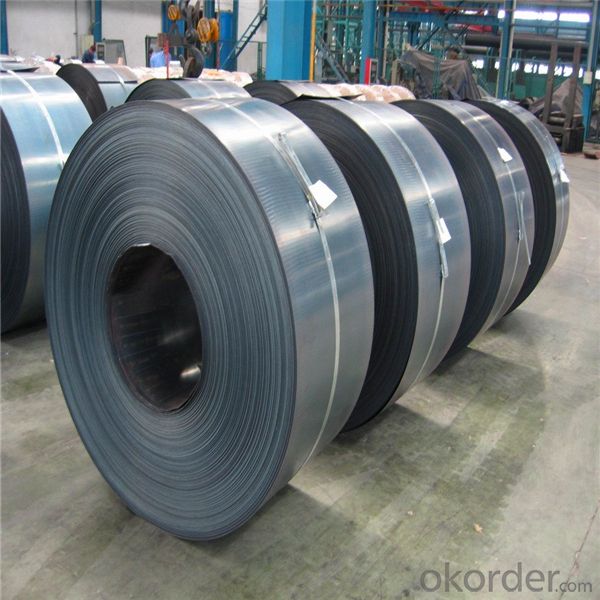
1. Q: Where is your company located? How can I visit there?
A: Our company is located in Beijing, China. Welcome to visit us.
2. Q: Can I get sample and how long will it take?
A:Yes. We can supply sample. And you need to pay for courier.
3. Q: What's the MOQ?
A: Our MOQ is 25mt.
4. Q: What's the delivery time?
A: It will take about 30 days after TT or L/C.
5. Q: What is the payment terms?
A: T/T, L/C at sight
6. Q: How does your factory carry out quality control?
A: We attach great importance to quality control.Every part of our products has its own QC.
7. Q: What certificate do you have?
A: We have SGS, ISO9001 etc.
- Q: How are steel billets produced?
- Steel billets are produced through a process called casting, where molten steel is poured into molds and then cooled and solidified to form rectangular or square-shaped blocks. These billets are then further processed through rolling or extrusion to create various steel products.
- Q: What are the different types of steel beams and their uses?
- There are several types of steel beams, including I-beams, H-beams, and wide flange beams. I-beams are commonly used in construction and offer excellent load-bearing capabilities. H-beams are often used in structural applications and provide more strength and stability. Wide flange beams are versatile and can be used in various construction projects, offering increased strength and durability.
- Q: How does steel sheet metal fabrication work?
- Steel sheet metal fabrication involves the process of shaping and manipulating steel sheets into desired forms and structures using various techniques such as cutting, bending, and assembling. This is typically done through the use of specialized machinery and tools, such as laser cutters, press brakes, and welders. The steel sheets are first cut into the required shape, either manually or through automated processes. Then, they are bent or formed using press brakes to achieve the desired angles or curves. Finally, the individual parts are assembled together through welding, fastening, or other joining methods, resulting in a finished steel sheet metal product.
- Q: What are the different types of steel coils and their applications?
- There are several types of steel coils used in various applications. Hot-rolled steel coils are commonly used in construction, automotive, and general manufacturing industries due to their strength and durability. Cold-rolled steel coils are often used in appliances, furniture, and electrical equipment as they provide a smoother surface finish. Galvanized steel coils, which are coated with a layer of zinc, are primarily used in outdoor structures, automotive parts, and agricultural equipment for corrosion resistance. Lastly, stainless steel coils are used in industries requiring high resistance to corrosion, such as the food processing, medical, and chemical sectors.
- Q: How is steel used in the manufacturing of elevator systems?
- Steel is used in the manufacturing of elevator systems primarily for its strength and durability. It is used to construct the main structural components of the elevator, such as the frame, guide rails, and support brackets. Steel's high tensile strength allows it to bear the weight of the elevator car and passengers, ensuring the system's safety and stability. Additionally, steel's corrosion resistance properties make it suitable for elevator systems that may be exposed to various environmental conditions.
- Q: How are steel pipes used in the transportation of chemicals?
- Steel pipes are commonly used in the transportation of chemicals due to their high strength and durability. They are designed to withstand the corrosive nature of many chemicals and can safely transport them over long distances. The smooth interior surface of steel pipes also helps to minimize friction and maintain the purity of the chemicals being transported. Additionally, steel pipes can be easily connected and installed, making them a reliable choice for the transportation of chemicals in various industries.
- Q: What are the different types of steel storage tanks?
- There are several different types of steel storage tanks, including aboveground storage tanks (ASTs), underground storage tanks (USTs), atmospheric storage tanks, pressure vessels, and bolted tanks. Each type serves a specific purpose and is designed to store different substances or materials.
- Q: What is the difference between carbon steel and stainless steel?
- Carbon steel and stainless steel are both types of steel, but they differ in their composition and properties. Carbon steel contains a higher amount of carbon, which makes it stronger and more durable but also more prone to rust and corrosion. Stainless steel, on the other hand, contains a significant amount of chromium, which gives it superior corrosion resistance and makes it highly resistant to staining. Stainless steel is also more expensive than carbon steel due to its added alloying elements and enhanced properties.
- Q: What are the common types of steel products used in the textile industry?
- The common types of steel products used in the textile industry include steel wires, steel needles, steel pins, and steel hooks. These steel products are essential for various textile processes such as weaving, sewing, and fabric production.
- Q: What are the different types of steel chains and their uses in the automotive manufacturing process?
- There are several types of steel chains used in the automotive manufacturing process. Some common types include roller chains, timing chains, and conveyor chains. Roller chains are commonly used in engines and power transmission systems to transfer power from the engine to various components. Timing chains are used to synchronize the movement of engine valves and pistons, ensuring proper engine performance. Conveyor chains are utilized in assembly lines and production processes to move and transport automotive parts. These steel chains play a crucial role in the automotive manufacturing process by ensuring smooth operation, power transmission, and efficient production.
Send your message to us
Cold Rolled Steel Sheet/Coil Made in China China Supplier
- Loading Port:
- China main port
- Payment Terms:
- TT OR LC
- Min Order Qty:
- 20 m.t.
- Supply Capability:
- 50000 m.t./month
OKorder Service Pledge
OKorder Financial Service
Similar products
Hot products
Hot Searches
Related keywords
